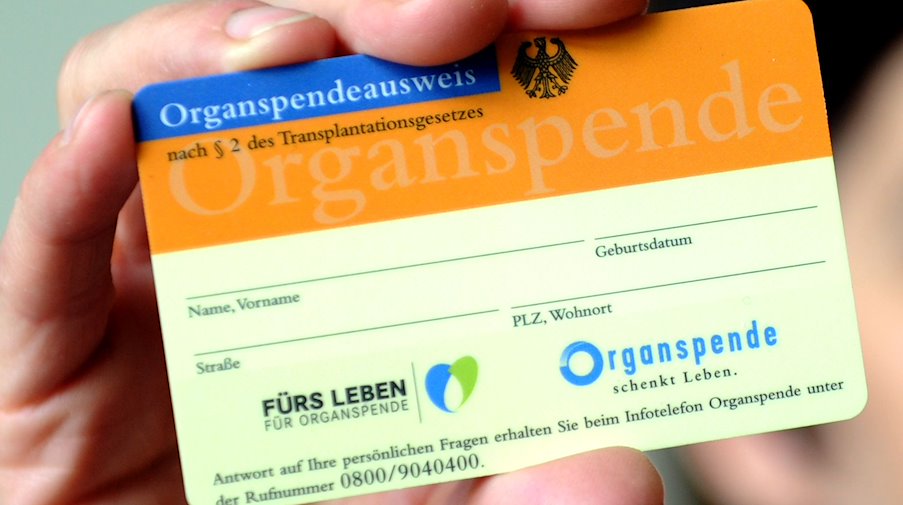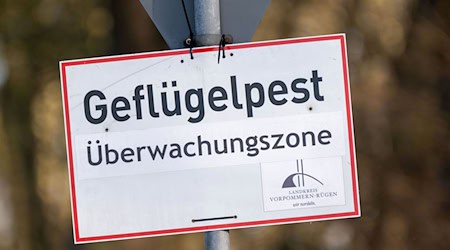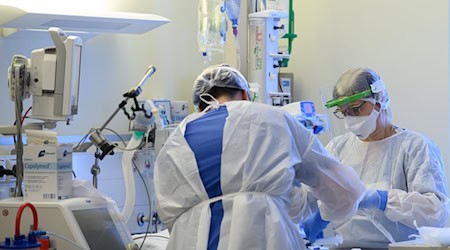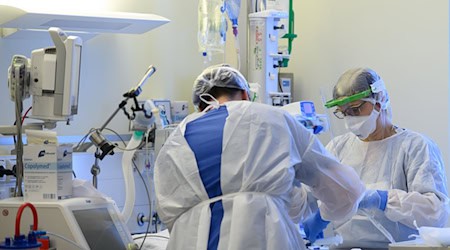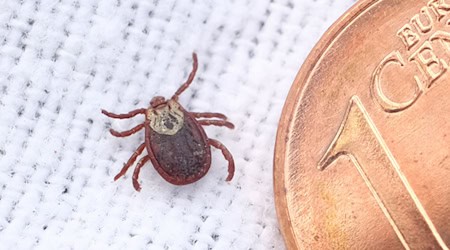The number of organ donations in Saxony remained almost constant last year. According to an overview published on Tuesday by the German Organ Transplantation Foundation (DSO), 181 organs were donated in the state in 2023. In the two previous years, the figures were 183 and 185 respectively.
Nationwide, the number of organ donations rose from 2662 (2022) to 2877 within a year. In 2021, however, the figure was still 2905. The DSO stated the number of organ transplants carried out in the state at 133 (2021: 121). A total of 372 organs were needed in Saxony, with 359 patients on the waiting list.
"The numbers of organ donors and donated organs in the Free State of Saxony have been stable for years, but unfortunately at a low level," said Saxony's Health Minister Petra Köpping (SPD) to the German Press Agency. "I am therefore in favor of the so-called opt-out solution. It could contribute to a real change. Since it does not exist, everyone should make their own decision during their lifetime."
With an objection solution, the consent of the person concerned or their relatives would no longer be required for the removal of organs. Instead, everyone would be considered an organ donor - unless they objected during their lifetime or one of their next of kin did so after their death.
According to the DSO, 965 people across Germany donated one or more organs after their death last year. This is 96 more than in 2022 and corresponds to 11.4 donors per million inhabitants. The number of transplanted organs increased by 8.1 percent to 2877 organs. These included 1488 kidneys, 766 livers, 303 hearts, 266 lungs, 52 pancreases and two intestines.
In the 45 transplant centers here, a total of 2985 organs were transferred in 2023 after post-mortem donation from Germany and the Eurotransplant Association (2022: 2795). Across Germany, almost 8400 people are on a waiting list for a transplant.
Axel Rahmel, Medical Director of the DSO, did not want to give the all-clear with regard to the waiting list. "Due to the enormous slump in donor numbers in 2022, the increase of eleven percent at least brings us back to the level we were able to maintain in previous years - and that is clearly too low in view of the approximately 8400 seriously ill patients on the waiting lists."
There is still a considerable shortage of donor organs. "Every single organ counts and can save a life," said Rahmel. "We must not abandon the people who depend on them, but we must use every opportunity to help them with a suitable donor organ."
According to the DSO, Germany is still at the bottom of the league internationally when it comes to organ donation and benefits from other member countries in the Eurotransplant network by receiving more organs than it donates.
Rahmel appealed to the population to make a decision on organ donation during their lifetime and to document this in an organ donor card and/or a living will. This is because organ donation is not possible in Germany without the consent of the deceased themselves or their relatives.
Copyright 2024, dpa (www.dpa.de). All rights reserved

